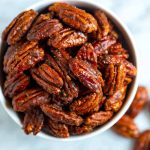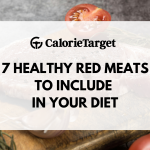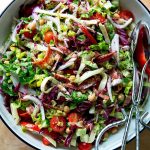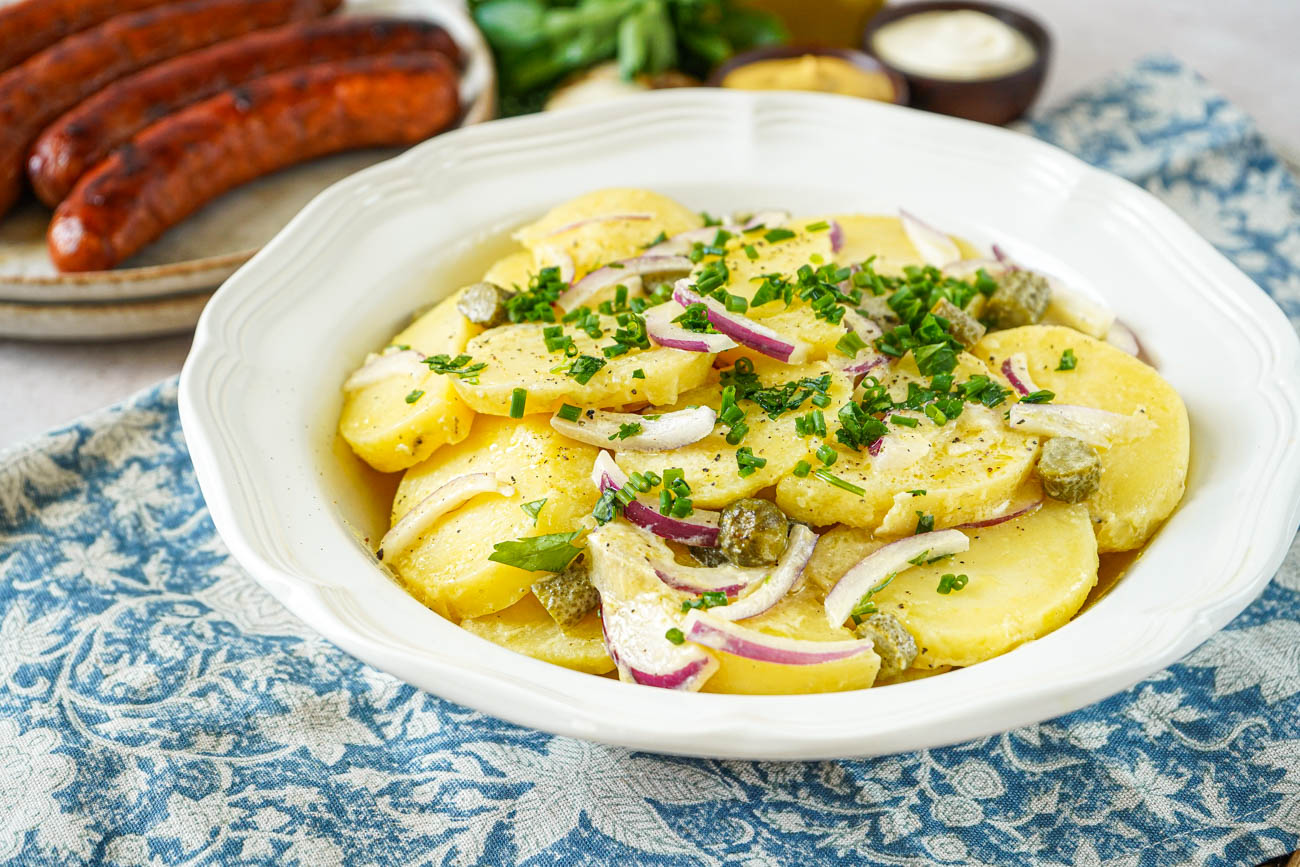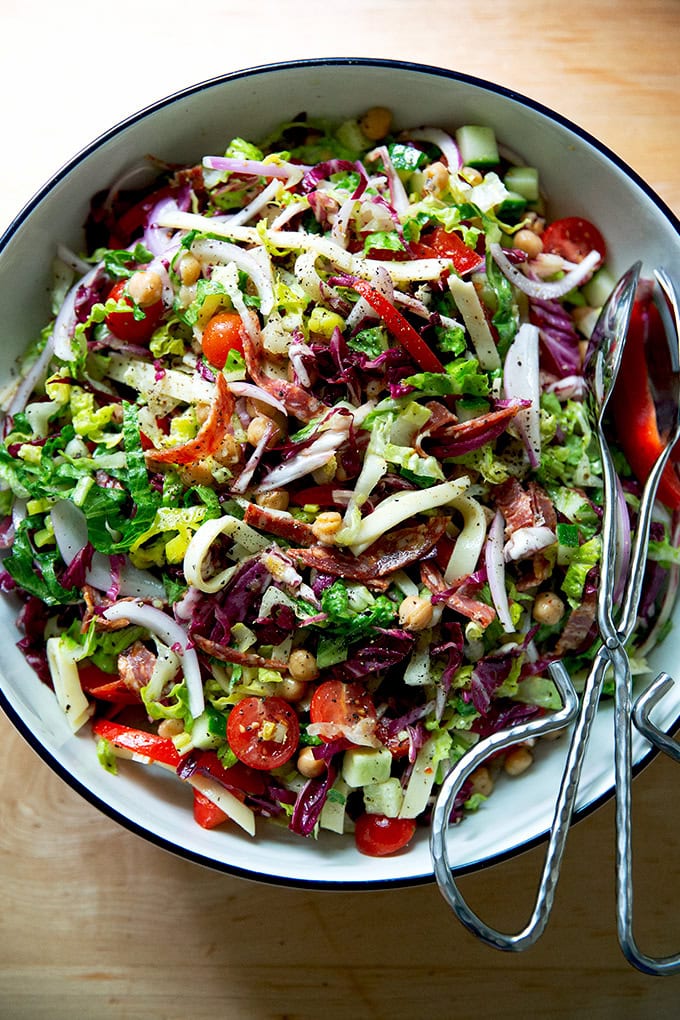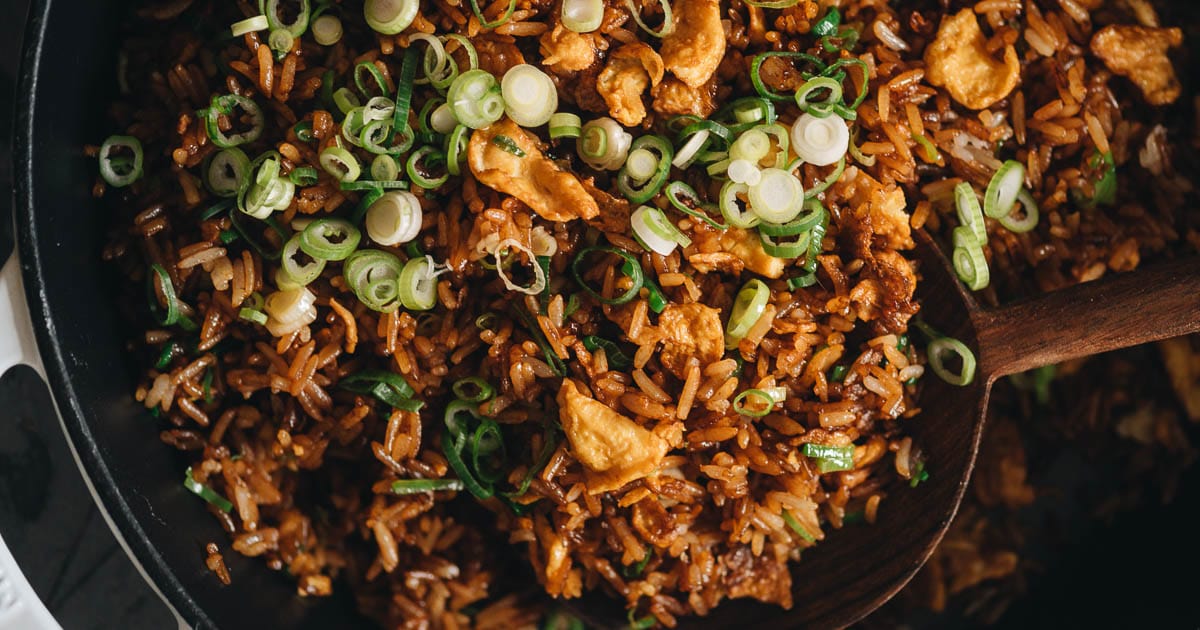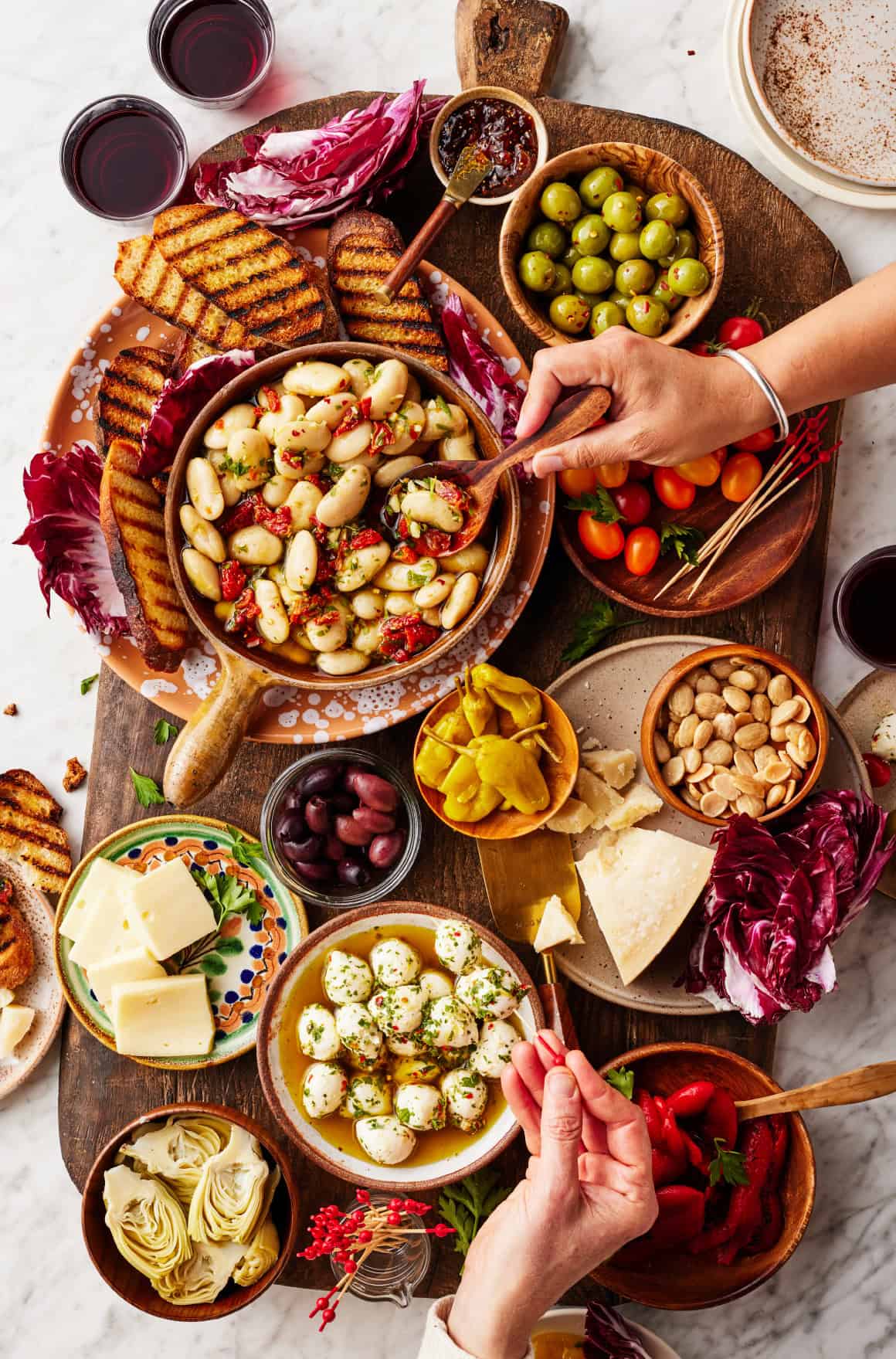This post may contain affiliate links. If you buy something through a link here, we’ll get a kickback at no extra cost to you. Wake + Bake is entirely supported by readers like you and we only recommend products we’ve tested and love. Thank you for your support!
Listen on Apple Podcasts
Listen on Spotify
Listen on Anchor
In this powerful episode, we dive deep into Jay Jay O’Brien’s incredible journey of overcoming cancer not once, but twice, with the help of cannabis. Jay Jay – a certified Cannabis Health Coach and Educator – shares her inspiring story and the pivotal role cannabis played in her battle against the disease.
Jay Jay’s story is a testament to the transformative power of cannabis when used intentionally and strategically.
From her initial diagnosis in 2019 to facing metastasis in her brain in 2023, Jay Jay details how she took control of her health and fought back with cannabis as her ally.
We’ll cover:
how Jay Jay’s personal and family history with cannabis laid the foundation for her exploration of its medicinal benefits.
Jay Jay’s introduction to cannabis as a powerful medicine and the life-changing revelation that followed.
Her experience with Rick Simpson oil (FECO), a concentrated cannabis oil, and its rapid impact on alleviating her debilitating pain.
The journey of self-discovery and spiritual awakening she experienced during her high-dose cannabis protocols.
How Jay Jay navigated the medical landscape and her struggles with the lack of support and acknowledgment from traditional oncologists.
the pivotal role of FECO in Jay Jay’s cancer remission, including her use of a multi-cannabinoid approach for enhanced effectiveness.
Get the latest insights on the evolving relationship between cannabis and cancer.
👩⚕️ If you or someone you know is navigating a cancer diagnosis and considering alternative approaches, Jay Jay’s story offers hope, inspiration, and valuable information. Don’t miss this eye-opening conversation that highlights the potential of cannabis in holistic cancer care.
🔗 Explore more cannabis-related content and join the conversation by subscribing to the Wake and Bake Podcast. Share this video to spread awareness about the healing possibilities of cannabis and inspire others on their health journeys.
🌱 Connect with Coach Jay Jay: www.naturalisticallynow.com
📚 Visit Educannation: www.educannation.info
🎓 Learn more about becoming a Certified Cannabis Educator in as little as 12 Weeks: cannabiscoachinginstitute.com/ccep
🍫 Use the code WAKEANDBAKE for $30 off at Ardent Cannabis: https://wakeandbake.co/ardent-cannabis
🎙️ Wake and Bake Podcast Episodes: https://wakeandbake.co/category/podcast/
🇨🇦 Visit Andrea at Reveal Cannabis: www.revealcannabis.com
👇 Drop your thoughts, questions, or experiences in the comments below. Let’s continue the conversation and support each other on the path to wellness! 🌈💚
Transcript of Ep 208
Episode 208 –
This week on the Wake + Bake podcast.
Jay Jay O’Brien: my whole adult life I smoked weed, but I didn’t realize cannabis for the medicine that it was until I ended up in this situation where I desperately needed something.
I wasn’t offered much hope by my doctors I was given six months to a year to live. And that’s when I immediately started looking for an alternative to that six months to a year.
I didn’t realize it could do what it could do. And once I did, it was just like this mind blowing aha moment that this is for me. This is what I need to be doing. This is it. This is my alternative.
It was actually on 4/20 of 2023, where they told me that there was no evidence of disease, they couldn’t find any active cancer in my body.
Andrea Meharg: And Jay Jay had beat cancer and the rainbows came out and that was the way life was supposed to go until it wasn’t.
Jay Jay O’Brien: I found out that I had metastasis to my brain from the lung cancer.
I had 11 tumors in my brain. And within three weeks, the 11 tumors were nine and the nine were a quarter of the size that they were initially.
And then after two months, all the tumors were almost completely resolved.
It doesn’t call to everybody, but, um, it calls to many of us and those, I think that it has called haven’t been disappointed by it.
Corinne Tobias: Hello and welcome back to the Wake and Bake podcast. My name is Corinne Tobias and I’m one of your co hosts here at the show. And I am incredibly excited for this episode.
Today we get to share with you a really powerful story that comes from Coach JJ O’Brien.
And JJ’s story is remarkable if you’re a cannabis educator or professional, or if you’re in the health and wellness field, Or if you or somebody you love have just been diagnosed with cancer, please give this episode a listen
in it. JJ will share her stories and her experiences and give you some valuable resources. If you’re navigating the combination of cancer and cannabis.
But on that note, this is just a conversation that we had with JJ. None of us are medical professionals, we are not doctors, and this is not to be considered medical advice in any way. Please talk to your doctor or find a cannabis professional. You can go to CannabisClinicians. org,
or stick around till the end of the episode and reach out to JJ for more support, more resources. Okay. Let’s get started.
Welcome to the Wake and Bake Podcast. Now this podcast has always been about the science and stories of cannabis. And this week we get to focus on a story about beating cancer, not once, but twice with the help of cannabis. Jay Jay O’Brien is a Canadian mother of one who was diagnosed with stage four lung cancer back in 2019.
And she didn’t just try cannabis for cancer. She took this plant and went to war against the disease. Jay Jay is one of our Cannabis Coaching Institute graduates, and she shared her journey in real time with our community, and we knew that we needed to share it with the wider world. So, Jay Jay, could you please introduce yourself and tell us a little bit more about your cannabis and cancer story?
Jay Jay O’Brien: For sure. Well, thank you so much for having me. As you said, I’m Jay Jay and, um, thanks to the Cannabis Coaching Institute, I’m now certified Cannabis Health Coach and Educator through my own business, Naturalistically Now, and at EduCanNation, uh, which is a non profit organization that I’m also affiliated with that’s dedicated to promoting responsible cannabis education in Canada.
And I ended up you know, coming to CCI and EduCanNation after getting this diagnosis in November of 2019. I wasn’t offered much hope by my doctors and not a lot of treatment options were available to me at the time. Uh, initially when I was first diagnosed, I was given six months to a year to live. And that’s when I immediately started looking for an alternative to that six months to a year.
I had lost my mom to cancer 13 years earlier. She had been given a year to live and she passed away seven days later. That was a very traumatic experience for me. And then hearing those words for myself and, you know, hearing them all in almost the same way it was just, I didn’t want to end up, you know, sharing the same fate as my mom and she really didn’t stand a chance.
Something in me just knew that there was another option available to me. And I started searching for alternatives and that’s where I found cannabis.
Andrea Meharg: But you didn’t just find cannabis when you were diagnosed with cancer. You have been in a cannabis positive environment household your entire life. I just read a blog that you wrote about that. Um, so this wasn’t something that you had to kind of like overcome the stigma in order to start using.
Can you talk to us about what it looked like for you when you decided, okay, I’m, I’m going to give cannabis a try. How did that play out in your real life?
Jay Jay O’Brien: Yeah, for sure. Well, I mean, like I smoked weed my whole life. That’s like my whole adult life I smoked weed, but I didn’t realize cannabis for the medicine that it was until I ended up in this situation where I desperately needed something.
My mom utilized cannabis her whole life and a lot of other members of my family. So it was very normal in my household. But when I heard about cannabis as a medicine, when I ended up being from a documentary called Weed the People, um, it was a big like light bulb aha moment for me when I found out what they were doing.
Like I had always known the oil is like hash oil. I knew my mom, you know, used to dabble with that back in the day. And but I didn’t realize it could do what it could do. And once I did, it was just like this mind blowing aha moment that this is for me. This is what I need to be doing. This is it. This is my this is my alternative.
Andrea Meharg: Let’s dive into that a little bit deeper. You started on a protocol of taking Rick Simpson oil, sometimes known as FECO, concentrated cannabis oil, all the names in order to combat the cancer. I want the people to hear because this is so powerful how you took this medicine into your own hands.
And instead of using it as you had daily for your life, you used it in a much different way .
Jay Jay O’Brien: I thought it was amazing when I was hearing on Weed, The People, and then, you know, when I discovered it for myself, uh, yes, it was absolutely mind blowing. Um, before I got the diagnosis of cancer for 6 to 8 months, I had been in and out of hospital with pain.
It ended up being pain from the metastasis in my bones and it was all over and they couldn’t pinpoint what it was causing it or where it was coming from. After the very 1st dose of cannabis oil that I had. The pain that I had been experiencing, which was absolutely debilitating pain, like, I’m a tough cookie and I can take pain and this pain took me out and after the very first dose of cannabis oil, the pain went away and it never returned, like, 4 years later, I never, ever experienced any of that.
That extreme debilitating pain that I experienced for months and months and months that had me crying that had me in hospital. It was gone. And so after that first day after that first dose and after you know waking up the next day and being pain free. I was completely convinced. I was completely convinced that this was going to work for me.
Corinne Tobias: That’s incredible. And we’re talking about this story. It is amazing. Yeah. It might sound amazing because it is amazing. I mean, you were left with very few treatment options, a short diagnostic window, with the terminal cancer and one dose. And you’re like, Oh, I don’t feel this pain anymore.
Can you tell me? How you navigated dosing from there?
Jay Jay O’Brien: Part of the reason I became a Cannabis Health Coach is because I didn’t have any of that direction when I first started out.
And what did I do? Well. I was a seasoned professional with cannabis use, and so I thought, oh, yeah, well, I will take this dose. Sure. No problem. And after 2 hours, I did not feel anything from that dose. So I thought, no problem. I can take more, took more and then, you know, it’s the common mistake. Like the number one mistake that people make.
And I ended up waking up at three o’clock in the morning and I was very agitated and I couldn’t get back to sleep and I was pacing my kitchen for a couple hours and it was a very uncomfortable evening. But like I said, I woke up the next morning and I was pain free. And so I didn’t care anymore about what had happened earlier.
I had completely forgotten because the results that I had just like just surpassed all of what I had just gone through.
And this is how I learned all these like wonderful capabilities that cannabis had. Because I had less pain, now I was able to move around a little bit more, so my mood improved, my appetite improved, because of that I wasn’t lying in bed all the time anymore, I was just getting out and about and doing more things, my outlook changed, so spiritually I was changing.
Mentally, you know, I was changing. And it just snowballed from there. Like, it was just this amazing transformation that happened for me where my body started feeling better. And then mentally and spiritually, I started feeling better. And and that’s where I feel like the true healing really started to take place for me because, you know, my circumstances did change and I found out I had a mutation and I was ended up put on a targeted therapy and that helped, you know, assisted me throughout.
It wasn’t like a hundred percent cannabis.
But it was cannabis in the beginning cannabis did all the heavy lifting right off the bat. I hadn’t started the targeted therapy until a month after I started the cannabis oil. And that’s when the metastasis started to heal, and that’s when the tumors began to shrink, and that’s when everything started to change for me, and then I started on the targeted therapy, and it just continued on.
So, you know, a lot of credit goes to the, to the medication that was given to me, but like, I feel it was everything all together, and a lot of the cannabis, you know, it had a lot to do with it.
Corinne Tobias: I would like to ask a question about the, the timeline of that.
So when did it go from I took my first dose? Uh, it was too much, but the next day I woke up not in pain to no evidence of disease. Well, how much time did that take?
Jay Jay O’Brien: Yeah. So there was years where I was going to the doctor and they were telling me that I was stable and unremarkable, and that was what you wanted to be, they said, stable and unremarkable, just meaning that there was no change whatsoever happening, and that was carrying on for a long time, and I was happy with that, but I was really, you know, wanting to not have this disease anymore, and really feeling that I could really eliminate it, and I felt that I could do it entirely with cannabis alone and and I feel that I did do that, um, because I did stop the targeted therapy.
And then about four months after that, I got the all clear. It was actually on 4/20 of, uh, of this year of 2023, um, where they told me that there was no evidence of disease, like they, they couldn’t find any active cancer in my body.
Corinne Tobias: That’s an incredible story. I wanted to circle back around on this idea of the targeted therapy and what was helping and what’s not, because I think there are so many people and in reading a book that I just got The Cannabis Cancer Connection, he talks a lot about how people have a tendency of choosing one thing or the other thing and denying the other one or not seeing the value in them working together.
And he just gives evidence that they work really well together that your best option is to use both, if both are available to use both in most cases, obviously, there are some outliers, which he outlines in that book. And so do you feel that way as well, that it was like, it enhanced what you were doing with the targeted therapy and that they worked well together?
Or is there a side effect symptom reduction? Is there anything that you can say about combining those 2 things?
Jay Jay O’Brien: Well, I know that I haven’t experienced a single side effect from the medication that I take in the entire time that I have taken it. Whether that is cannabis related or not, um, who’s to say, um, but I definitely would say that it has been a support to me through this entire journey that I’ve had.
Absolutely. And there is some evidence to support as well that Cannabis can enhance the cytotoxic action of a lot of chemotherapeutic or immunotherapy or, immune checkpoint inhibiting drugs. Like it can benefit for sure. And I’ve seen it work. I’ve seen it work with myself.
I’ve seen it work with my father in law, who I was just currently, you know, helping on his journey with cancer. He thanked me every day for that medicine that I gave him because he said it was helping and I feel that it was helping and a lot of it is, you know, your intention and what you believe.
And with this medicine, you know, it’s very intentional as well. And if you use it in an intentional way can have these amazing transformational results.
Andrea Meharg: I remember the day that you told me you got the all clear from Mm-Hmm, , you know, the hospital because that was something that was like really eating at you, right?
That you felt like you were disease free and they kept on saying you’re unremarkable and stuff, but you wanted them to say, yo, you’re done. And they did. And we all cheered and celebrated and was wonderful. And Jay Jay had beat cancer and the rainbows came out and that was the way life was supposed to go until it wasn’t.
So then what happened?
Jay Jay O’Brien: Yeah. So, um, it was just this past August, um, of 2023, where I was having some headaches and a little bit of equilibrium and dizziness issues. And then ended up just with this headache that wouldn’t quit 1 day. And that brought me into the hospital where I found out that I had metastasis to my brain from the lung cancer.
I had 11 tumors in my brain. it’s what they told me. That was August 12th of 2023. And then I started back on the cannabis oil immediately. I had really, you know, not been keeping up with it as much as I should have been. I was taking really high doses even higher than I was taking before and just getting as much into me as possible and within three weeks, the 11 tumors were nine and the nine were a quarter of the size that they were initially.
And then after two months, all the tumors were almost completely resolved. So that was. Um, so that was one heck of a transformation and as well, I did go back on the targeted therapy as well because I had been off it and the targeted therapy was a kind of a consolation prize for not doing radiation because they wanted to do radiation and I was really not okay with that.
It’s not something that I wanted to do. So I decided to go back on the targeted therapy and combine it with the cannabis and I hit it as hard as I possibly could. And here we are. I’m feeling great. And I have no tumors in my brain.
Hey there, Corinne again. And we are just going to take a quick break to make a note from one of our sponsors, the Cannabis Coaching Institute.
Corinne Tobias: If you’re listening to this podcast right now and you’re like, I would really love to be doing this kind of work. I would love to be sharing how healthy cannabis is and learning more about the science and sharing that with everyone that I know.
Well, you’re probably one of our people.
Go to cannabiscoachinginstitute. com to learn more about the certified cannabis educator program.
It gives you absolutely everything you need to get started helping others with this powerful plant.
All cannabis coaching Institute programs are internationally accredited by the international practitioners of holistic medicine. So if you’re feeling called to start working with this plant, go to cannabiscoachinginstitute. com to learn more.
That’s incredible. That’s so incredible. Thank you so much for sharing that.
Corinne Tobias: It blows my mind. I mean, that’s so fast. I mean, that’s so, such a fast transformation. I have so many other questions, but now I’m curious because you’re talking about, well, they wanted me to do radiation. They wanted, to do this alternative therapy. What were the conversations like with your oncologist when you started talking about utilizing cannabis and what was working for you?
Were they supportive? Did they know what you were talking about? Did you have to educate? What was that like?
Jay Jay O’Brien: Oh, I wish I could say that they were. They’re not supportive nor unsupportive. They just act like it doesn’t exist, which is really unfortunate. So makes me feel quite gaslit a lot of the time and alone on this journey, at least as far as my medical team is concerned, because none of them will really acknowledge it.
None of them have any knowledge about it. I did ask my oncologist how much they knew about the endocannabinoid system, and she said that we did have about an hour about that we talked about it in, in a lecture one day. , So I was like, well, do you realize that it’s one of the most important cellular signaling systems in your body that controls all the other systems of your body.
And I actually. Like, I have my Bonni goldstein’s Cannabis is Medicine book, and on several occasions, I have walked to my appointments with that book under my arm with the title facing out, walking down the hall, and I’ll put it on the doctor’s desk with the title facing them, and I’m just waiting for it to spark some kind of conversation or waiting for them to just acknowledge it and they never do.
And my last appointment I pointed to it ’cause I had it with me and I pointed to it and I’m just like, nobody is acknowledging this. I’m being ignored. And it’s just so unfortunate and it’s how I’ve ended up here and how I’ve come on this journey because I’ve had to find out all of this information on my own to, to save myself because really all they offered me was, well, you’re probably going to live for five years and that’s it for you. And I was like, no, I, I don’t think that’s the case at all. I think I, I think I can do better than that. So here I am, you know, I’m doing better and I’m doing it a lot of my own.
Andrea Meharg: It makes my stomach hurt when you said your oncologist had you know, an hour of that education and you are doing everything in your power, literally to save your own life and to have the powers that be just see you just acknowledge that what you’re doing at least isn’t causing harm. Do you know like any sort of give on that side of the table, I think would have made an emotional difference for you.
Can we talk about something else that is ignored a lot in this and something that I’ve never heard anybody say before meeting you. Something that you wrote or said way back when you started at CCI was that one of the times when you took too much THC and you’re, you know, up in your head out in the clouds you had like a spiritual awakening where you realized that you had been in part responsible for creating this disease in your body and that you were going to take responsibility for eradicating it from your body. Can you talk more about that kind of spiritual side of using cannabis to help you with this?
Jay Jay O’Brien: For sure. I’ve never been much of a meditator or anything like that. Um, but, you know, taking these high doses of cannabis oil, it was pushing hundreds of milligrams of THC would bring me into these really euphoric states. And, you know, when it hits you, when you hit that peak, you feel it, you feel the wave.
I would call it the whoosh, when the whoosh would just come over me. And sometimes, yeah, I would just kind of be in my own space in my own head in this, I guess, meditative state in a trance like state almost. And yeah, it was in these spaces where I was just kind of zoned out, but I was tuned in. I really came to like, find myself again.
I came to reconnect with myself again. You know, Bob Marley says, when you smoke the herb, it reveals yourself to you. And I, I couldn’t agree with that more because I, I went a little deeper than that. And I had myself revealed to me, and I and I did realize that a lot of what I had done in my life had led me up to that point, and I was able to take responsibility for my actions and my role in it, which brought about, you know, a lot of acceptance, and it brought a lot about a lot of forgiveness, which I think all of these things are really conducive to healing.
They’re really necessary and required, um, forgiveness being, you know, a huge ones. The plant really brought me into these spaces. And now I, I dabbled so much more spiritually with cannabis. I’ve taken cannabis meditation facilitator training, and I see the potential of where this medicine can take people to so many amazing healing places.
Corinne Tobias: So, Jay Jay, looking back at the past 4 years, what do you wish that you would have known back at your initial diagnosis?
What do you wish that people knew when they have a diagnosis of when it relates to cancer?
Jay Jay O’Brien: Well, I’m like, I’m out here on this mission to let people know that there’s just this option available to them because their doctors don’t know about it. But it’s here and it’s so helpful and I just want people to know.
It’s it’s safe, it’s effective, you know, we’ve heard that a lot before, but this is actually very true. This is a very safe and effective plant. It’s been around for thousands and thousands of years and, it’s been helping people.
And there’s a lot of studies and a lot of evidence as well that prove that, a lot of these molecules can kill cancer cells and can help your medicine work better, and it just has so much potential. And just with such little harm potential, like, why not at least consider it when some of the treatments for cancer are so harmful, and I’m not saying don’t do them, but it’s just this is an option. It could work. And so why not at least consider it, give it a try. And I’d love to say, talk to your doctor about it. But, you know, unfortunately, there’s not too many of them out there that have the knowledge, but I’m hoping that there will be more. I mean, I wish I had known about it 16 years ago, when my mom was diagnosed.
I’m just so glad that I have the knowledge now. I’m so glad that I came across it now and I just, I want everybody to have it. I think it’s essential that everybody does.
Corinne Tobias: Yeah, that’s so important. It’s not like you weren’t aware that cannabis existed. It’s not that you weren’t aware that it was safe.
You weren’t aware that it could be used as medicine. And so many people are in that boat. I mean, I would say the majority of human beings on this planet are still at least a little bit scared of cannabis, like at least a little bit, especially concerned to talk to their doctor about it. So what guidance would you give to someone who is like, I want to navigate this.
My doctor doesn’t seem to be that supportive or isn’t supportive what would you say if someone’s in that situation?
Jay Jay O’Brien: Yeah. Well, I mean, you can reach out to me. If I can’t help you, I’m sure there’s somebody else will because there are other people like me out here that want to help people and that know the power of this medicine and have used this medicine themselves. Because I’m here because other people use this medicine and shared their stories about how it helped them and because of them, I am here.
So I am here and I want to share my story about how it helped me because I know it can help other people. So I’m so grateful for, you know, you having me here so that I could do that.
Corinne Tobias: You’ve been helping people now for well over a year, right?
With cannabis and cancer. There’s been a ton of science that’s come out in this past year. So has there been something that has completely blown your mind and you’re like, yep, I knew it. I can’t wait to share this with everyone.
Jay Jay O’Brien: Well, the immunotherapy connection, like everybody was saying that cannabis and immunotherapy was a no go that you shouldn’t be using them together.
And I never really felt that made a lot of sense being that these are both utilizing your immune system. And cannabis can takes your immune system to this high functioning place where it’s, you know, functioning at its optimum level.
So why wouldn’t you want to do that? So the connection between immunotherapy and cannabis and how they were saying that it was a no go, it never really sat right with me and now there’s some new evidence that has come out to suggest that, actually immunotherapy and cannabis do work well together as opposed to work against each other.
So that was, uh, encouraging to see.
Corinne Tobias: Well, I think one of the interesting things about the research that we have, obviously so much of it is done as using single molecule THC. And so we’re talking about something as massive and complex as immunotherapy and the, the mechanisms that works on and a plant that it has so many different molecules that have worked on different mechanisms as well. What what I’ve heard, and I would love to hear your perspective on this, is that the multi strain, multi cannabinoid approach is super important for this. So how did you navigate that as you’re combating cancer?
Jay Jay O’Brien: Cause I was strictly all about the high THC when I was, you know, first diagnosed and that’s what I was learning. It was high THC. You had to have high THC and that was it. But then, um, a little bit down the road, Dr. Dustin Sulak came out with this case study in Sage Journals, and it was a study of this woman with breast cancer who did chemotherapy, but she also did multi cannabinoid blend oils like CBD, CBG, CBDA, CBGA, THCA, CBN, like pretty much the whole gamut. Um, plus she was doing microdoses of psilocybin and her cancer rectified. She stopped the chemotherapy and she also reduced her cannabis use. And then her cancer came back. She continued on with the cannabis use and her cancer went into remission again.
So that was a really eye opening study for me about the whole multi cannabinoid blend. And it was after reading that, that I started incorporating them more into my protocol as well.
Corinne Tobias: I would love to, um, to talk about FECO for a minute because I think when people think about using cannabis for cancer, they are thinking about smoking cannabis to alleviate pain symptoms or to get the munchies, but that’s not what we’re talking about. Or having this conversation, these miraculous things that we’ve talked about in the story that you shared earlier, this is all from ingestion, usually of high concentrates of cannabinoids.
So can you tell me a little more about FECO and what you’ve learned about it on your journey?
Jay Jay O’Brien: Oh, my gosh. Might be here for a while. I mean, yes, I’ve learned so much that I’m going to write a book about it . It was really confusing for me when I first started out because of all these terms, because I heard at first called Phoenix Tears, and then I learned it as Rick Simpson Oil. And then I heard FECO down the road and all these different terms.
And then I later found out that they’re really all just mean the same thing. This highly concentrated cannabis oil. I do believe that we should be calling it FECO at the end of the day, because it’s the most explanatory term that we have out here, full extract cannabis oil, because when you say Rick Simpson oil , if you don’t know who Rick Simpson is, or if, like, is it made with his blood? What is it? Like, it could be anything. So I think it’s really important that we start to change the language and, and, you know, call it what it is. And it is a full extract cannabis oil and, um, it is highly concentrated and it does have these highly medicinal. benefits because it is so highly concentrated, you know, usually coming in around 70 to 90 percent THC.
It’s heavy hitting. It’s not for, uh, the faint of heart. It’s something that you don’t go and you take high doses of right away. This is where you want to start low and go slow. But this is also where Dr. Sulak says start low and go slow, but don’t be afraid to go all the way.
And, you know, this is what he’s talking about. He’s talking about these high dose protocols for people like myself, who are, you know, trying to, um, affect some serious change in their bodies.
Corinne Tobias: I think we’re going to learn more and more about how, when you’re using cannabis as medicine, you should be talking about FECO It’s just, I honestly, I’ve never felt so good. I’ve never had such pain reduction. I’ve never had such a balanced kind of experience. I’ve never like fully experienced what I think cannabis can do in the longterm. As, as I have in the past few weeks, just dialing up FECO because I read this book and I was like, okay, well let’s see how it goes. And yeah, it’s been the fucking best medicine that I’ve ever, ever had. And I’m like. What the fuck, why are we doing anything else with cannabis? Like I
Jay Jay O’Brien: said, I’m just like, Fangirl, man, I think THC is amazing.
Corinne Tobias: I think THC is amazing.
I do think that this idea of mixing a lot of stuff together, it’s like all everything needs to come to the party. And like, and it it’s so helpful. I would love to see not just, you know, stuff with FECO and cancer, but I’m like, with fucking everything, give it all you got.
Jay Jay O’Brien: Like suppositories, I drink cannabis tea. I take oils. I do FECO I rub it on my skin. I put it in my belly button. Like I literally put the fucking shit everywhere I can in any way I can, like all the way. And look
Andrea Meharg: at you still here kicking at the end of 2023.
Jay Jay O’Brien: We’re feeling better than ever, like feeling better than I’ve felt my whole life. And like,
Corinne Tobias: knowing that like, if something happens, like you have this, like, what was amazing to me, it wasn’t like what happened when you found out about the tumors again. Like, I think all of a sudden it was like, like brokenhearted.
And you were like, I got this, don’t worry. And like your response to like, I got this, don’t worry. I was like. Oh, fuck. Yeah. And then you’re like, yes, you told you guys, you popped on Instagram and you’re like, I just figured I should let you all know they’re already gone now. Pretty much. So I was like, what the fuck is happening?
It’s just like, you, you now know that you can take control of your own health. And to me, like that forgiveness piece, the FECO piece, like all that, but like. Mostly it’s that that’s super powerful for me is that you were like, I’m, I’m going to do this. I don’t care what you say. I know this is right for me and I’m going to take this pathway and learn as much as I can. I was reading in The Cannabis Cancer Connection, a book that you recommended that he talked about how it’s not just FECO, right?
There are other types of extracts pull out different compounds and could potentially have different effects on different types of cancer and he was talking about mixing these like a lot of different extraction methods together as well as a lot of different cannabinoids together. Do you have any experience with that?
Or is that something that you’ve heard before?
Jay Jay O’Brien: I am starting to hear that more and more about, um, creating FECOs that are blends of different extraction methods. That’s something new to me.
Corinne Tobias: It’s cutting edge stuff. And that’s the thing that I think that we often forget when we’ve been doing this for a few years is that we are riding on an edge where there’s more information, there’s more innovation. There, there are more discoveries happening every day. There are more stories coming in of what works for people and what didn’t that I think it’s, it is a lot.
Do you feel that?
Jay Jay O’Brien: For sure. And there’s a lot of information out there. Like, I’m starting to learn, um, some new information about solvents, um, and learning that actually isopropyl alcohol might actually be the better quality solvent over food grade alcohol, because of how it converts in your body, um, after the fact.
So there’s so much to learn and it’s fascinating. But yeah, we’re definitely always learning and things are always changing. And there’s new and new, more and more studies coming out.
I would just love to see some more studies that are actually, you know, studying FECO for cancer. That would be wonderful.
Corinne Tobias: Like in humans, ideally and women, you know, like that would be, I know it’s crazy. It’s crazy. Wild idea.
Jay Jay O’Brien: And if we could come up with a test to test if there are cannabinoid receptors on, on cancer tumors, then we would know better if the cannabis is going to work.
Because it seems to be that where there are tumors that don’t have receptors, those are the ones that are not responding to the cannabinoids. So if we could have a test that would test those tumors for receptors, then we would know if cannabis could make an impact or not. That would be amazing.
Andrea Meharg: And ironically The way for us to test cancer cells to see if they have cannabinoid receptors is for oncologists to know that there is an endocannabinoid system and that this is something they should look for, which is why we’re all doing this out here on the daily, right?
Shouting from the rooftops. That you might want to check out
Jay Jay O’Brien: cannabis
Corinne Tobias: The science is there. And it’s so interesting that this, like this lag that we know about that it takes so long to get to a doctor’s office from research to a doctor actually going, Oh, another doctor found this out.
I’m going to incorporate this in the way that I engage with patients. We don’t have that kind of time anymore. Like the rise in cancers is like so insane right now.
Jay Jay O’Brien: You know, it’s absolutely astronomical. One in two men or one, three women will be diagnosed with at least one cancer in their lifetime.
That’s the odds right now. And they’re saying by 2030, it’s about a 50, 50 chance for everybody. So we all need to be like. We need to be bringing some balance back to our endocannabinoid systems here because obviously, you know, we are out of balance.
Andrea Meharg: Okay, I want to switch to what you’re doing professionally out there. You’re doing private cannabis coaching. I know that you run educational seminars for anyone interested in learning more about cannabis and cancer, but you mentioned earlier that you’re also on the board of EduCanNation, which is a Canadian nonprofit dedicating dedicated to spreading science backed cannabis education with the world.
Can you tell us about the work that you do with that organization and why it’s so important to you?
Jay Jay O’Brien: Yeah, for sure. I mean, I came across EduCanNation a couple years ago just after I graduated from CCI and they were an organization I just felt very aligned with. , it was also started by two women who were breast cancer survivors.
So we kind of had that connection as well, and I just really loved, you know, their vision and their mission that they were trying to, you know, advocate for access and advocacy and research and policy. And there was just so much that they were doing, and I was just starting out in my business, and they were a big support. That’s a lot of what EduCanNation is here to do is to support people who are starting their cannabis based education or coaching businesses. And through that we offer business support. We offer educational seminars a couple of times a month.
We offer community and collaboration. And we’re becoming Canada’s 1st association of certified cannabis educators. and we just have so much going on in this month in December. We’re actually having an open house, and we’ve opened up all our events for free to, um, the general public.
Most of our events that are normally for members only. Um, so if you are interested in coming to learn a little bit more about what education is all about, then you can just head to our website at educannation.Info, It’s going to be a great time and we’d love to meet you and learn how we can better support you.
Andrea Meharg: I’m a member of EduCanNation as well and I’ve been to many of their meetings, and it is truly wonderful. It’s hard for us out here sometimes as lone cannabis educators in our like community.
So it is a wonderful supportive space for other people who are like minded to join and gather. So yeah, we’ll drop the links to that below.
Corinne Tobias: Thank you so much for, for coming on. I mean, Just from our perspective, we saw you as a student come in the doors. We heard your story from the get go.
And it has been like waiting with bated breath to see, you know, like how things would go for you. Your attitude was so positive. And I really don’t want to discount what you said earlier about that shift for you, like being able to watch it over the months, you know, when you were with us at CCI, watching how much you like brightened and let go of things and showed up more relaxed to meetings and things like it was visible how much you were shifting and how much was changing for you.
Just seeing you develop in this career, in this profession and being able to step into this and be helping people doing this work is just so incredible to see. And I just have so much gratitude. Thank you so much again, Andrea and I were talking earlier, like I was like, I don’t think that, you know, how much we think about you and how grateful we are that you’re carrying the workout into the world and in this way. Thank you so much for coming to hang out with us today. So we can share this with more people.
Corinne Tobias: I do wanna talk about something that we don’t really talk about in medical cannabis and cancer, just in general.
Um, but death anxiety, was that something that you found was impacted by your cannabis use as well?
Jay Jay O’Brien: Sorry, that’s a tough question to answer for me because, uh, I did go through it and, but it wasn’t as much from any of my cannabis use, but it happened through doing some other healing modalities with breath work and I had a cold exposure that brought about this moment for me where my whole life flashed before my eyes and I thought I was dying in that moment and I had a panic attack.
And yes, cannabis has helped me, manage the symptoms of that for sure. And it’s helped me, find my way through it, uh, through. Meditation and and things like that, because I really thought that there was something that I needed to get over. But I learned and especially, you know, through sitting with the medicine that it was something I couldn’t get over.
It was something I had to the only way through was in. I had to just be in it and, um, it, and it did help me, but it was, it was a difficult time. It was a difficult time for me and cannabis certainly helped me through it.
Corinne Tobias: Yeah. Well, like you said, it’s not just about the cannabis, right? Like it’s sometimes we, as cannabis educators are like, well, it wasn’t the cannabis, but it’s like a part of of this whole of the whole thing. Right. You shouldn’t just have the one thing you’re you’re when you are put in the experience of a cancer diagnosis. And I can only imagine, you know, what that’s like, cause I’ve never had a cancer diagnosis, but it is that like, pump the brakes, like, okay, let’s look around at what’s working and what hasn’t worked.
Right. And like, what’s calling to you to heal. It’s not just like the 1 way, right?
Jay Jay O’Brien: For sure. I mean, it could be the way for some people.
It has been the way for some people. There, there’s a lot of other stories out there of people that have just used cannabis and have healed their bodies and they’re fine. That wasn’t my particular story, you know, and I want to be up front. But it’s worked for, it worked for other people. So it’s possible.
Corinne Tobias: Yeah, like there’s some people who are like, I don’t want any forgiveness. Give me the cannabis. And that worked just fine. Like, no, I’m not dealing with any of this. Move on
Jay Jay O’Brien: your journey and your intention. You’re in, you know, I mentioned it before your intention is really, really huge and you, you have to come to it.
The medicine revealed itself to me and, you know, I came to it and I came to it willingly and you have to, you know, just go to the depths of your willingness with it. That’s all that you can do. It doesn’t call to everybody, but, um, it calls to many of us and those, I think that it has called haven’t been disappointed by it.
Andrea Meharg: want to try to segue into
Jay Jay O’Brien: this. It’s going on the blooper reel?
Andrea Meharg: Everything goes on the blooper
Jay Jay O’Brien: reel.
Corinne Tobias: our bloopers are getting insane. I’m like, it’s getting embarrassing. Now I feel like I have unlimited phlegm. As soon
Andrea Meharg: as the thought came to my head, I was like, this is hilarious.
Corinne Tobias: Oh, we did need that cannabis education after all.
I swear, man, again, it’s so weird to me that it’s like when you’re like, I’m a cannabis educator and people will be like, Oh, so you teach people how to roll joints. And I’m like, still. 2024 is coming and we still, that’s the vibe
Andrea Meharg: we love you. We think about you all the time. Obviously. Super weirdly, apparently.
Corinne Tobias: We’re not creeps except we’re creeps. We’re gonna get a cardboard cutout. Like, what would Jay Jay do? She’d be like, I got this. Don’t worry about it.
Don’t worry. Don’t
Jay Jay O’Brien: be scared.
Andrea Meharg: Okay, let’s, let’s end this puppy before we’re looking at Corinne’s snatch.

